Exploring Earth’s Incredible Geography – Facts that Will Blow Your Mind!
From majestic mountain ranges to sprawling rivers and valleys, our planet is a truly remarkable place. But what you think you know may be completely wrong – the world’s geography holds many surprises!
Here are some fascinating facts about the Earth that will amaze and inspire you to learn more about our incredible planet.
Ready for a Shock? Mount Everest Isn't The World's Tallest Mountain!
It’s no wonder why the world has been so captivated with Mount Everest – it stands incredibly tall at an intimidating 29,029 feet. But don’t let that fool you into thinking that it is the tallest mountain on Earth! That title belongs to Mauna Kea in Hawaii.
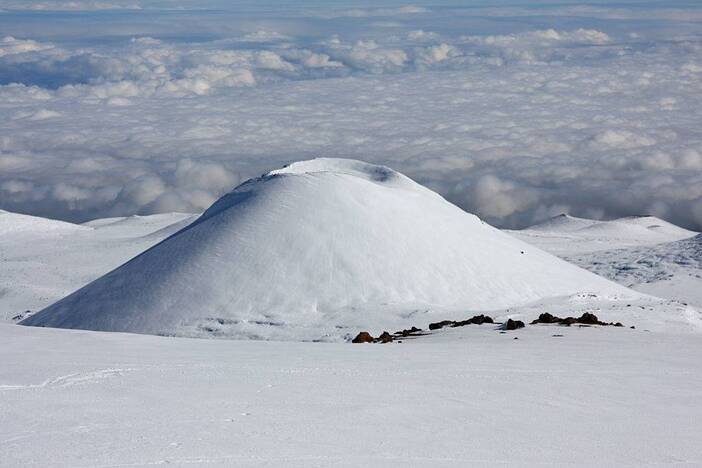
Source: Kirk Aeder/Icon SMI/Icon Sport Media via Getty Images
While its height above sea level may only be 13,769 feet, when measured from its base at the bottom of the Pacific Ocean all the way to its tip that number jumps up to an astounding 32,80 feet – making it a whopping 3,000 feet higher than Mount Everest!
Sink, Sink, Sink: Mexico City Descending into the Earth!
For centuries, Mexico City has been a bustling hub of activity and culture. But before Europeans arrived in 1521, it was an artificial island built on top of ruins by the Aztecs. For hundreds of years since then, Mexico City has experienced consequences from its unique location – namely sinking deeper and deeper into the earth.
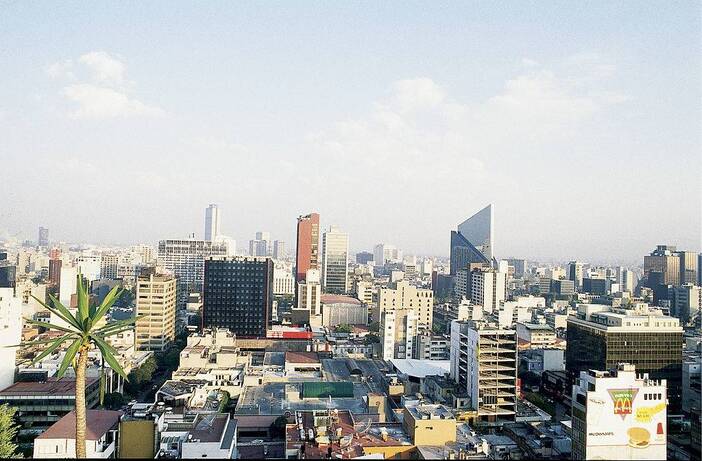
Source: Independent Picture Service/Universal Images Group via Getty Images
It’s estimated that this metropolis around Lake Texcoco is descending an incredible 3.2 feet each year! And to make matters worse, due to unsustainable water-pumping practices by locals over the past 60 years the city’s descent has accelerated to 32 feet!
Discover the Magic of More Than 7,600 Islands: Explore the Philippine Archipelago!
The Philippines are a wondrous archipelago of islands – more than 7,641 in total! That’s several hundred more than originally thought. This incredible discovery serves as a reminder that knowledge and even scientific knowledge is ever-changing and ever-evolving.
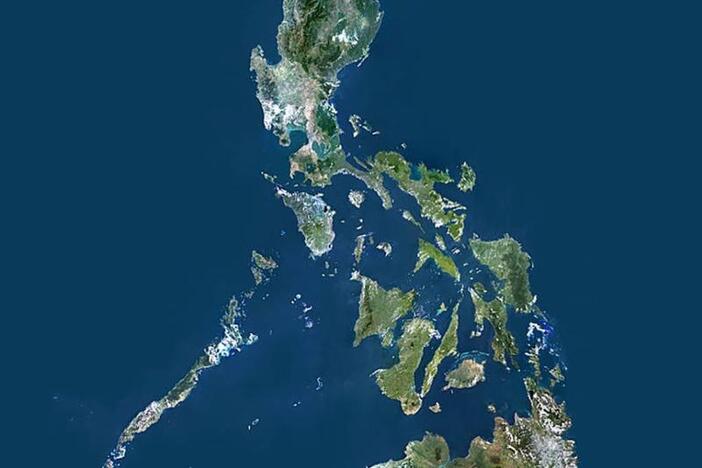
Source: Planet Observer/Universal Images Group via Getty Images
It’s time to explore this fascinating archipelago with its vast array of islands, each offering an abundance of natural beauty for you to discover and enjoy. So gather your gear, hop aboard a boat or charter plane, and set sail for an unforgettable journey through the Philippine Islands! Who knows, you may even find a new one?
Amazing! Alaska is Both the Westernmost and Easternmost State in the US - Believe It or Not!
Have you ever taken a look at a map of the United States? It quickly becomes clear that Alaska is America’s westernmost state. But did you know it’s also its easternmost? That’s because it stretches so far west that some parts fall into the other side of the world – into the eastern hemisphere.
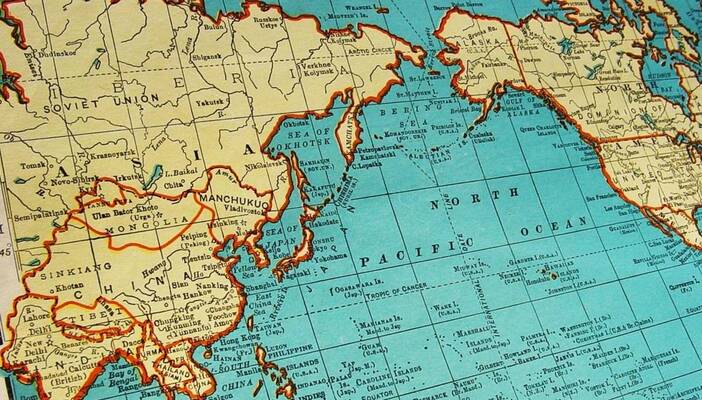
Source: Pinterest
Even more astonishingly, Semisopochnoi Island lies in the Aleutian Islands, which makes it North America’s most eastern point of all! So whether it be West…or East…Alaska has got your back covered!
Submerged in an Island-ception! Step away from the mundane, and immerse yourself in an island-ception!
Nestled deep within the Philippines lies Vulcan Point- an island located inside Main Crater Lake, situated on Volcano Island. But wait – just another level down and you’ll find yourself within Lake Taal, nestled cozily right on Luzon – the largest and most populous island in the Philippines.
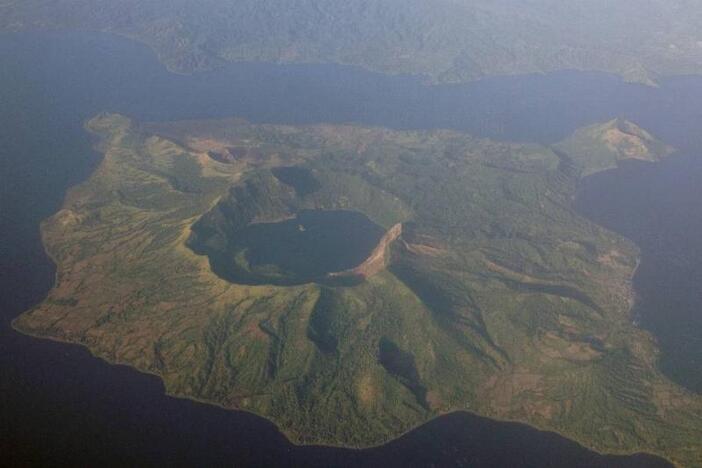
Source: Wikipedia Commons
Here you can explore nature’s wondrous gift to us all while experiencing its unique wonders. With its distinct flora and fauna, one will never have a dull moment here making it an ideal spot for both adventure seekers and nature lovers alike. So what are you waiting for? Come take a journey into this hidden gem of the islands!
Incredible Russia: Where Morning and Night Happen at the Same Time
Welcome to Russia, where you can experience two moments in time at once. The sheer size of this nation alone is enough to baffle the mind, but even more so when we learn that it holds a whopping 11 out of 24 time zones across the globe!

Source: Peter Turnley/Corbis/VCG via Getty Images
While one side of the country wakes up to morning light, far away on the other side people are settling down for dinner. That’s right—in Moscow, morning and night fall simultaneously! So next time you think about what it would be like to experience both sunrise and sunset all in one day—head on over to Mother Russia!
The Mysterious Sargasso Sea: A Marvel of Nature!
Have you ever heard of the mysterious Sargasso Sea? This sea, located in the North Atlantic Ocean, is truly a marvel of nature. It’s unlike any other sea in existence due to its lack of coasts and shorelines. Instead, it is surrounded by four ocean currents that keep it isolated from landmasses.
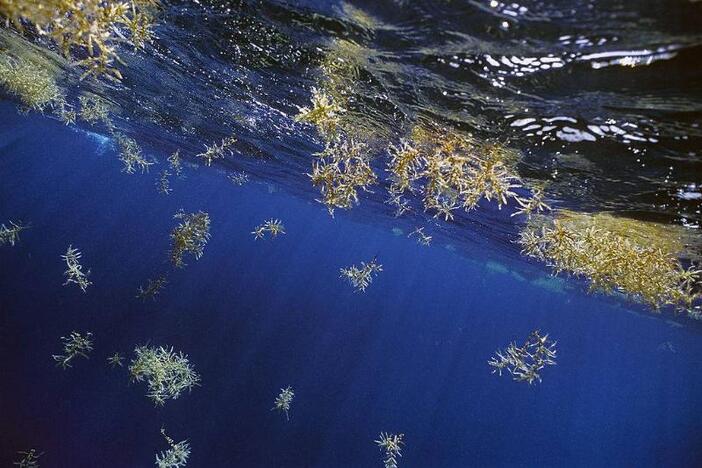
Source: Wild Horizons/Universal Images Group via Getty Images
But what makes this sea even more special than its isolation is the incredible amount of sargassum seaweed that covers its entire expanse. This type of seaweed thrives best in warm water temperatures and high salt content which are both found throughout the Sargasso Sea.
Check Out the Massive Rock That's Twice Ayers Rock Size - Mount Augustus!
Located in the Australian Outback, this massive rock stands at an impressive 2,300 feet tall and can be seen from miles away. But even more impressive? It’s twice the size of Ayers Rock, one of Australia’s most iconic granites.
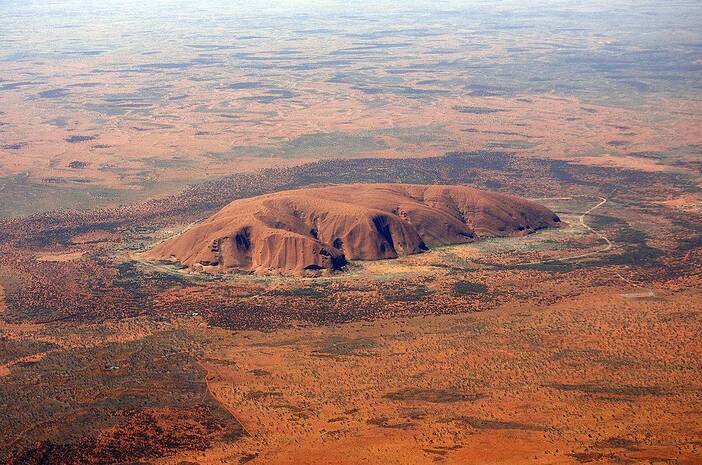
Source: TORSTEN BLACKWOOD/AFP via Getty Images
And if that wasn’t enough to wow you, get this: Mount Augustus is a staggering 1.65 billion years old; truly an incredible feat for any rock to still be standing today! So next time you head down under, make sure to check out this jaw-dropping marvel up close and personal – it’ll take your breath away!
Tomorrow Island and Yesterday Island: How Two Islands Just 2.4 Miles Apart Can be 20 Hours Apart!
If you thought time travel was impossible, then you haven’t heard of the Diomede Islands located between the United States and Russia. These two islands are separated by an international border as well as the International Date Line, making them just 2.4 miles apart — yet 20 hours apart!
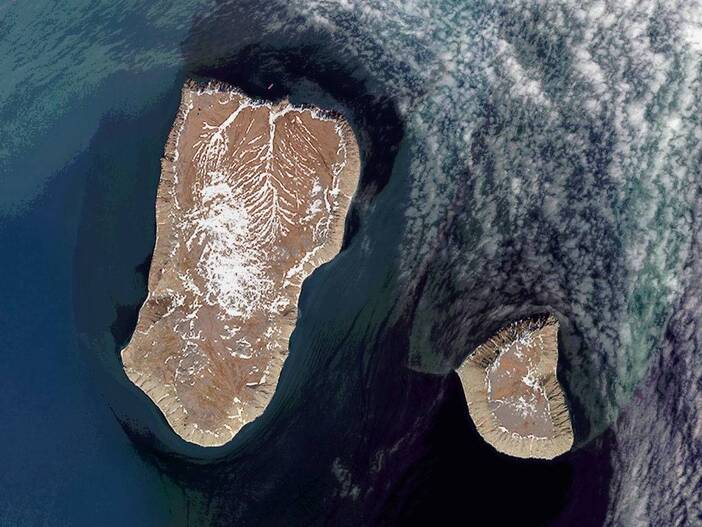
Source: Orbital Horizon/Copernicus Sentinel Data 2018/Gallo Images/Getty Images
Big Diomede (also known as Tomorrow Island) is located in Russia while Little Diomede (Yesterday Island) is in America, which means that one is always tomorrow while the other remains yesterday — a true phenomenon of time. It’s hard to imagine two places being so close together geographically but also such distant points in time.
Discover the Timeless Beauty of the World's Oldest Continuously Inhabited City - Damascus!
Explore a city with more than 11,000 years of history! Traverse the sophisticated beauty of Damascus-the world’s oldest continuously inhabited city. As you wander through its winding streets and discover its 125 monuments that date back to 3rd millennium BC, you will marvel at how this vibrant hub has been continuously populated since ancient times.
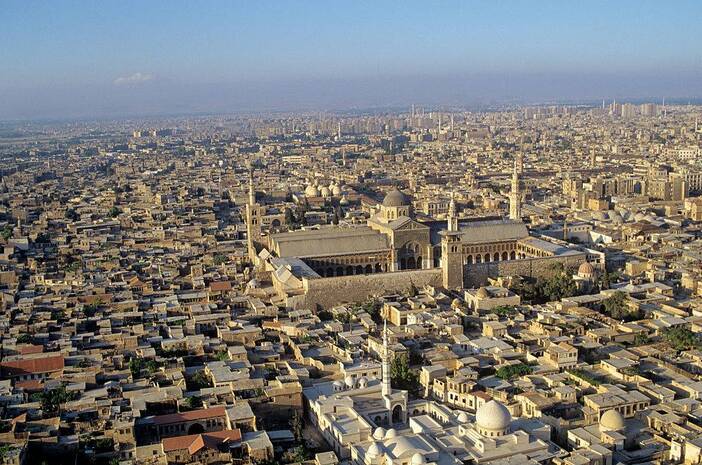
Source: Soltan Frédéric/Sygma via Getty Images
Today, as culture and creativity thrive in this remarkable destination, it’s home to over 1.7 million people from all walks of life. It was even honored as the Arab Capital of Culture in 2008, granting it a unique privilege among cities around the world for its long-lasting appeal.
Exploring the Subterranean Wonderland of Kentucky
Do you want to explore a mysterious and fascinating underground world? If so, head to the Bluegrass State and check out the world’s largest cave system in Mammoth Cave National Park. With over 400 miles of explored passages, there are untold wonders still waiting to be discovered here.
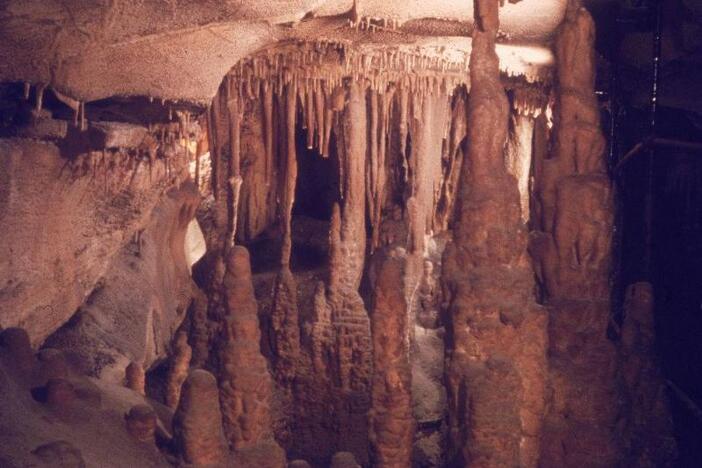
Source: Hulton Archive/Getty Images
This incredible expanse of limestone caverns has more caves than anywhere else on Earth! In fact, there may even be up to 200 miles left unexplored beneath Kentucky’s surface. Even if most of this remains unknown, visitors can still marvel at the beauty that is accessible today—it’s truly an otherworldly experience.
Time to build that snowman - It's Snowing in the Sahara - No Joke!
The Sahara desert is home to some of the hottest temperatures on Earth and usually snow isn’t something one expects to find here. However, it has surprisingly been recorded that there have been three snow falls within 40 years, with the most recent being just last year.
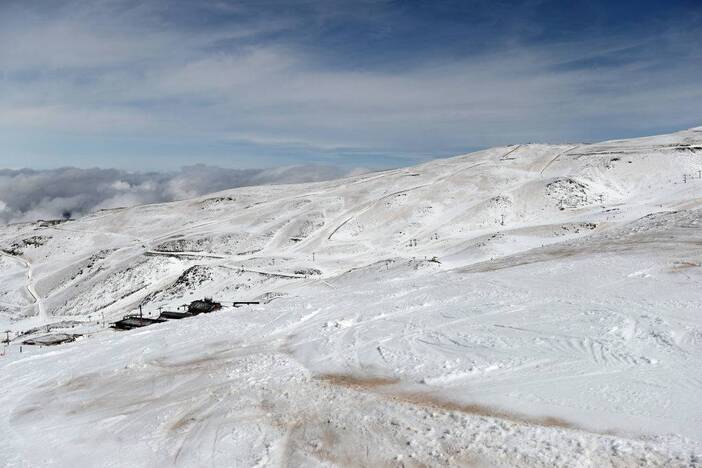
Source: Clive Rose/Getty Images
During hot days, temperatures can soar up to 136 degrees fahrenheit but at night time things take a turn for cooler climes as they drop to an average 25 degrees fahrenheit – cold enough for snow! Imagine looking out your window and seeing flakes fall – you wouldn’t think you’d be able to experience that while visiting this amazing place!
A Heart That Stirs the Soul: Visiting the Great Barrier Reef
The Great Barrier Reef—the largest living organism in the world, stretching along 1,429 miles of Australia’s coastline—is a breathtaking sight to behold. But did you know that if you view it from above, you can even see a heart-shaped part of it?
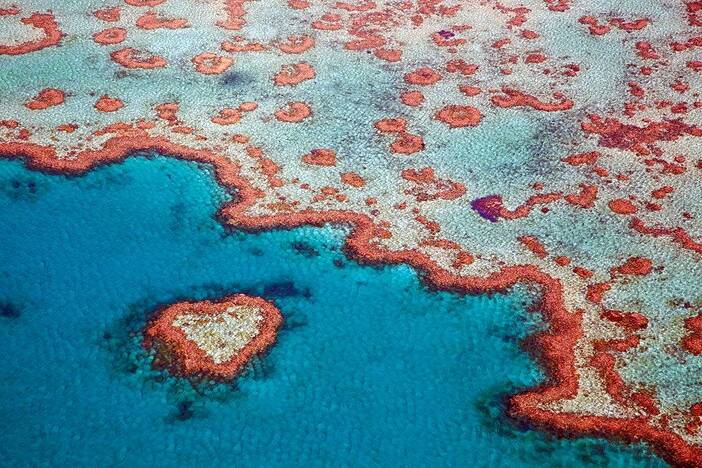
Source: Arterra/Universal Images Group via Getty Images
This incredible phenomena was first spotted by a pilot back in 1955. Spanning 55 feet in diameter and located at Hardy Reef in Whitsundays, this heart-shaped area is not close enough to be reached by boat—but it sure stirs one’s soul with its beauty and wonder! A journey here will surely be unforgettable!
Mount Chimborazo, Not Everest, is the Closest Mountain to the Moon!
The world’s tallest mountain might be Mount Everest, but it isn’t the closest mountain to that big bright thing in the night sky – the moon! Counterintuitively enough, this honor goes to Mount Chimborazo in Ecuador. That’s because our planet looks more like an oval inflated in the middle instead of a sphere.
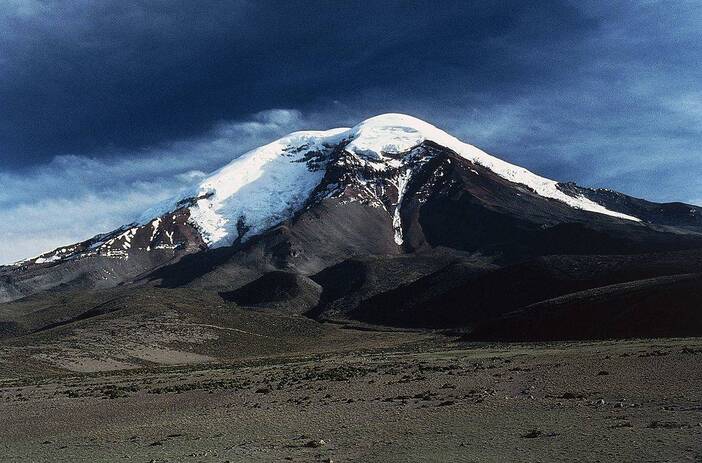
Source: DeAgostini/Getty Images
This means that because of its proximity to the equator, Mount Chimborazo reaches a whopping 20,564 feet and is closer to the moon by 1.5 miles than even mighty Mount Everest. So if you’re ever looking for a truly out-of-this-world experience look no further than Ecuador!
A World of Wonder: Africa Spans All Four Hemispheres!
Africa never fails to amaze us! It is the world’s second-longest and second-most-populous continent, covering 6% of Earth’s total surface area and 20% of its land area. With a population of 1.3 billion people as of 2018, it is no surprise that it has so much to offer the world.
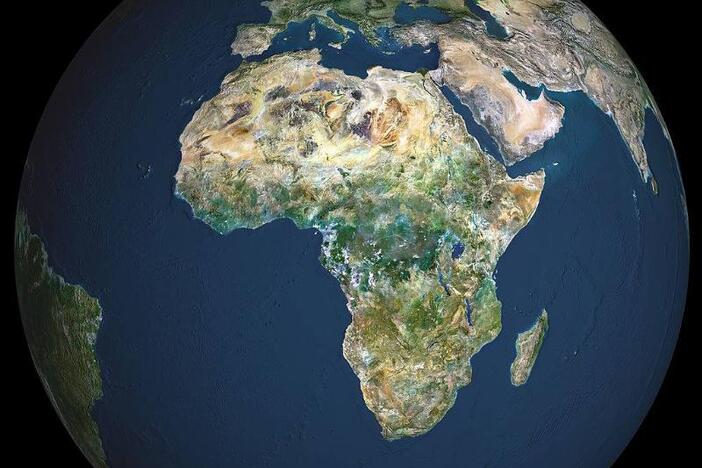
Source: Planet Observer/Universal Images Group via Getty Images
But what makes Africa truly remarkable? Its ingenuity goes beyond borders – literally! This amazing continent is the only one in the entire world that spreads across all four hemispheres – north, south, east and west – making it an astounding 12 million square miles in size. Look no further than Africa for a true global experience!
Is the World Swimming in Water or Drowning in Thirst?
Almost three-quarters of Earth’s surface is covered with water, yet it’s estimated that we can only consume 0.007% of this! Out of the 2.5% freshwater, only 1% is readily available to us from lakes, rivers and aquifers — leaving us desperately far from having enough to meet our needs.
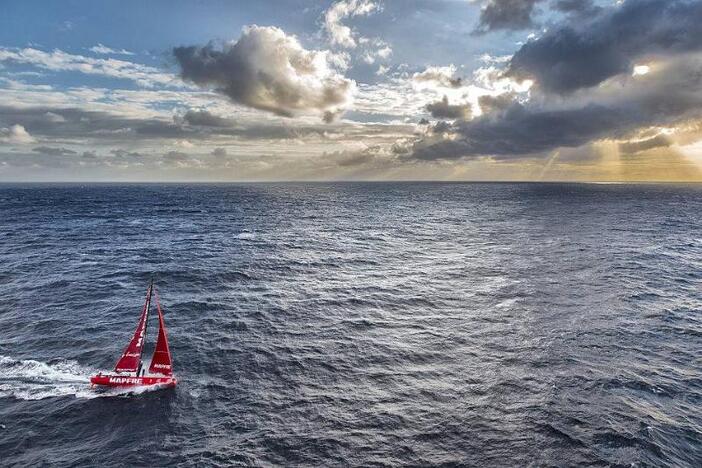
Source: Ainhoa Sanchez/Volvo Ocean Race via Getty Images
The remaining 98.5% of freshwater is unfortunately trapped inside glaciers and snowfields around the planet! Although most of our planet seems like an incredibly vast body of water, it’s humbling to remember we can’t access most parts—but that also means there’s still hope for better hydration if we work together now!
Forever Connected Through A Piece of Land in North Carolina: England's Memorial for WW2 Heroes
The Outer Banks of North Carolina hold a special plot of land that stands as a reminder of the brave souls who serve their nations in war. The small town of Ocracoke is home to a cemetery and memorial leased to the United Kingdom, honoring the lives lost on the HTM Bedfordshire during World War II.

Source: Jeffrey Greenberg/Universal Images Group via Getty Images
On May 5th, 1945, this English naval ship was sunk by German U-boats. Of the 37 sailors aboard, only four bodies were recovered and laid to rest in this solemn place.This piece of land is regarded as England,visit it and pay tribute to the brave men beneath.
From Minnesota To Mississippi: It Takes a Drop of Water 90 Days to Travel Down the Mighty Mississippi!
Unbelievably it takes a drop of water ninety days to travel down the entire length of
North America’s second longest river? That’s right – from its northernmost source in Minnesota, all the way down the mighty Mississippi River to its end in Louisiana, it can take up to three months for a single drop of water to reach the Gulf.
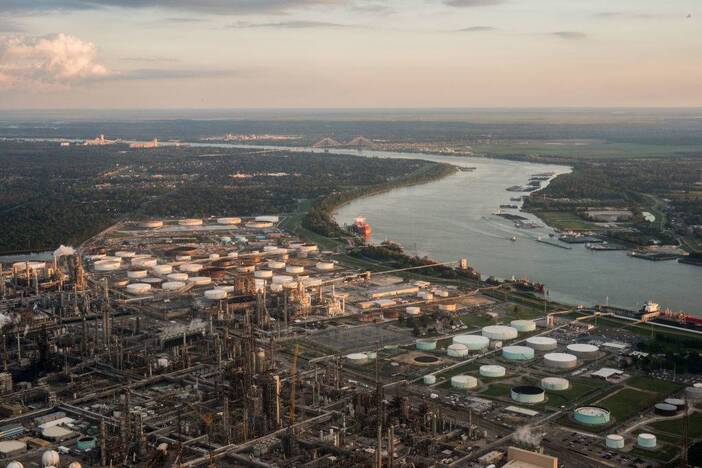
Source: Giles Clarke/Getty Images
At 2,348 miles long, this river faces so many twists and turns along its journey that no one drop ever travels alone; instead they form together with other droplets and become part of an unstoppable force along their unique way.
The Longest Country Name: A Tale of 56 Characters!
The United Kingdom is the proud holder of the title for the country with the longest name, but that hasn’t always been so. Before 2013, Libya was crowned with this record-breaking feat at 63 characters – Al Jumahiriyah al Arabiyah al Libya ash Shabiyah al Ishtirakiyah al Uzma – and we can only assume that it made bureaucracy a true challenge to get through every day!

Source: Hollie Adams/Getty Images
Thankfully in 2013, Libya officially changed its name to simply ‘State of Libya’, sparing us all from having to learn such an unwieldy mouthful. We are sure many would agree that this change was long overdue!
Are you ready to be amazed? Believe it or not, Hawaii is home to snow capped volcanoes!
Believe it or not, the Hawaiian Islands aren’t just known for their beaches and balmy climate – they’re also home to some of the highest mountains in the world! Mauna Kea and Mauna Loa on Big Island, as well as Haleakala on Maui, tower above 10,000 feet and get snow during winter months.
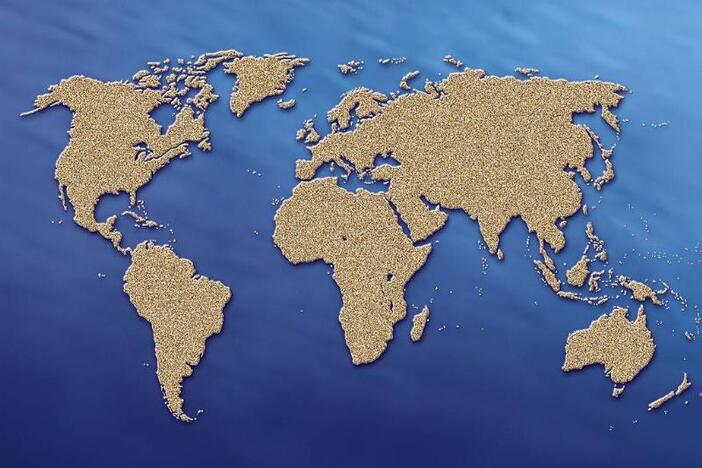
Source: BSIP/UIG Via Getty Images
Just imagine snow-capped peaks surrounded by rolling waves and swaying palm trees! Imagine feeling the warmth of Hawaii’s sun while flurries fall from a chilly sky. From seaside picnics to sleigh rides in paradise – experience Hawaii like never before with an unforgettable wintery adventure!
“Snow”-Far Out! Australia's Alps Beat the Swiss for Winter Fun
Did you know that whilst the Swiss Alps are known for their snowfall, Australia has a hidden gem of its own – and it even outdoes the famous mountain range in terms of snowfall? That’s right, down under is home to the Australian Alps, which not only offer splendid winter views but also plenty of powdery fun.
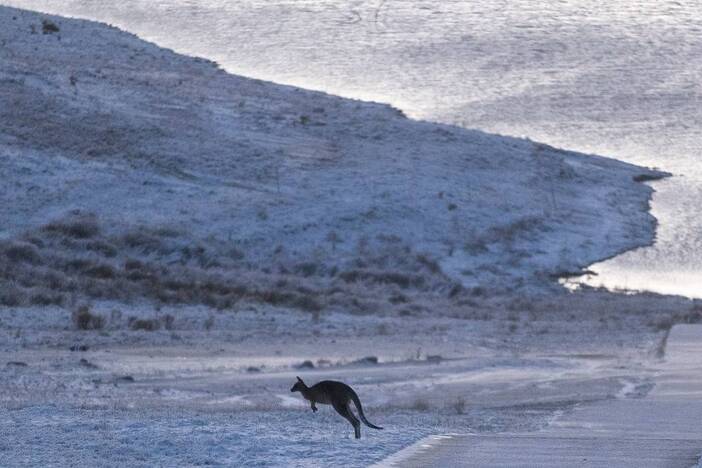
Source: Brook Mitchell/Getty Images
Nestled along New South Wales’ and Victoria’s border near the coast, these mountains can receive more snow than their well-known counterparts in Europe during June to September. So forget trekking up hillsides in Switzerland – come get your snow fix down under!
The Supervolcano Beneath Yellowstone National Park: Active and Overdue!
It’s no secret that Yellowstone National Park is one of the most impressive in the United States, but did you know it could also be home to a supervolcano? That’s right – this monster has actually erupted three times in its history, though not since 640,000 years ago.
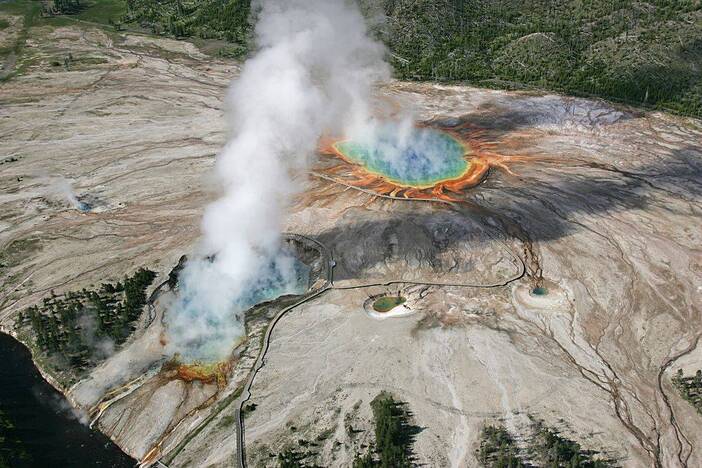
Source: Smith Collection/Gado/Getty Images
If it were to erupt again, it would release more than 240 cubic miles of materials into the atmosphere – an incredible double the volume of Lake Eerie! We can only hope that this volcano stays dormant for many more years to come.Sometimes being overdue is better than being early!
Discover the World's Largest Sand Island in Australia!
A journey to Fraser Island, located in the great land of Australia, is a once-in-a-lifetime adventure filled with awe and wonder. Spanning 76 miles long and 14 miles wide, this majestic island is home to some truly remarkable sites.
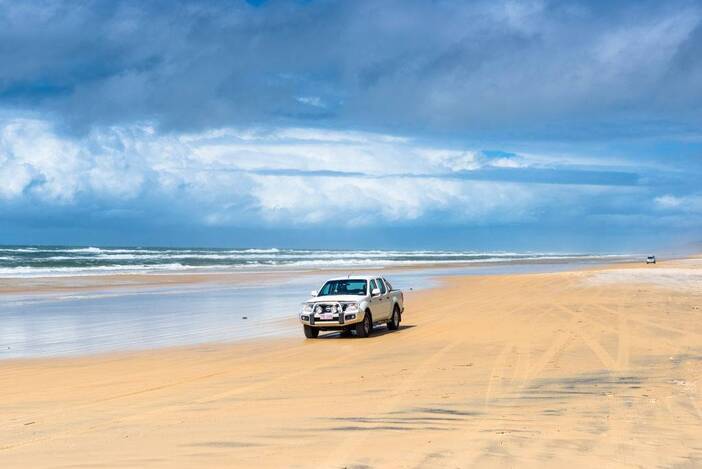
Source: Education Images/Universal Images Group via Getty Images
Not only is it the largest sand island on earth but was also declared a World Heritage Site by UNESCO back in 1992. The traditional land of the Butchulla people has remained relatively untouched despite its immense size — according to the 2016 census, there were only 182 permanent inhabitants living there at the time. Experience something that’s been thousands of years in the making!
Escape Danger in Peru on the Amazing Floating Islands!
Visiting Peru? Leave the mainland and explore something truly unique: an incredible city of floating islands in Lake Titicaca! Located above Peru, the small village of Puno has remained unchanged for centuries.
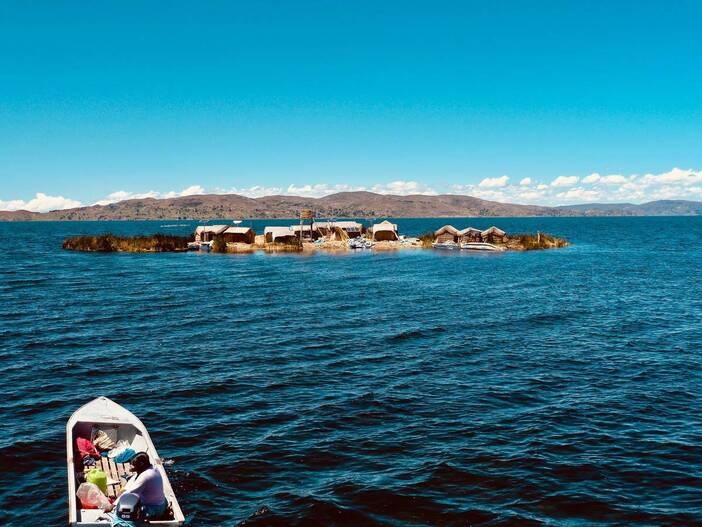
Source: Unsplash/Azzedine Rouichi
By stacking piles of reeds, the villagers craft small platforms that sit atop the lake’s surface – allowing them to escape danger and build a permanent settlement. Thanks to their clever engineering, these islands are strong enough to bear numerous structures and homes at once! So if you’re looking for a different kind of adventure, take a trip up north and experience one-of-a-kind wonders among nature’s beauty. Come explore Peru’s floating islands today!
Feeling Adventurous? Take the World's Shortest Flight!
Have you ever wondered what it might be like to take an incredibly short flight? If so, then a flight between Westray and Papa Westray in Scotland is just the ticket for you! At 1.7 miles long, this quick jaunt will only last around 57 seconds – depending on the weather of course.

Source: BRENDAN SMIALOWSKI/AFP via Getty Images
And don’t worry about cost: Most people seem to buy tickets for this unique experience just to say they did it! So if you’re feeling adventurous and looking for a unique way to get from A-B then why not try out the world’s shortest commercial flight? Bon Voyage!
Geography 101: Los Angeles is East of Reno!
It’s no secret that California lies west of Nevada. But what many don’t know is that the City of Angels, Los Angeles, lies east of Reno! That’s right – you heard it here first. For all those geography buffs out there, this may come as a shock – but it’s true!
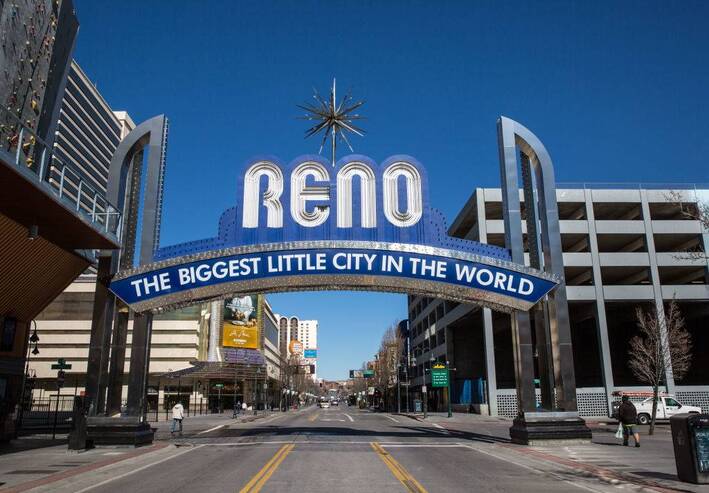
Source: George Rose/Getty Images
The city of LA is 86 miles east of Reno, NV. Who knew? This small distance from the westernmost coast demonstrates just how expansive the United States really is. Even with only 300 miles separating Nevada and the Pacific Ocean, logic isn’t always enough when discussing geography! So remember: Los Angeles is indeed east of Reno.
Discover the Exciting Wonders of Istanbul - A Metropolis Split Between Two Continents!
Stretching across two continents, Turkey’s vibrant and historic city of Istanbul has been a world-famous destination for centuries. It is located on both the European and Asian sides of the Bosphorus Strait, with a magnificent bridge connecting them together.
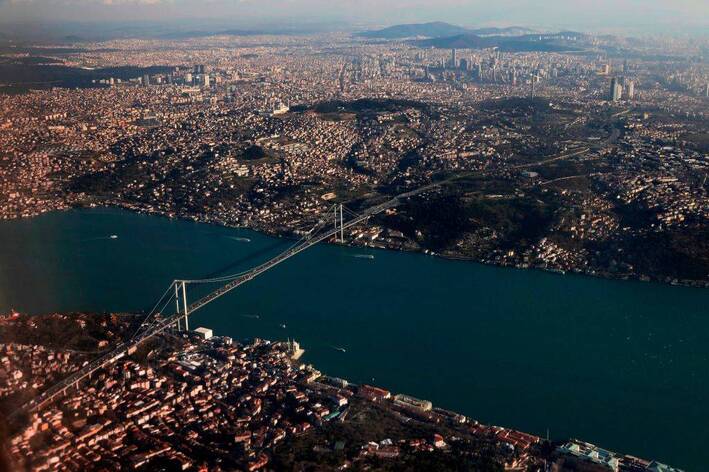
Source: ADEM ALTAN/AFP via Getty Images
This bustling metropolitan area has over 14 million inhabitants and its history dates back to almost 2,000 years ago when it served as an important capital for three empires – Roman, Byzantine and Ottoman. From discovering ancient mosques to sampling traditional Turkish cuisine or exploring its museums; you can rest assured you won’t be short of activities in this exciting city!
Brace Yourself! Russia Is Home To The Coldest Place On Earth
With temperatures reaching a staggering low of -96.16 degrees Fahrenheit in 1924, it’s no surprise that Russia is home to the coldest permanently inhabited place on Earth. Oymyakon, Russia has an average temperature of -58 degrees Fahrenheit and believe us when we say it gets colder than ice cream there!
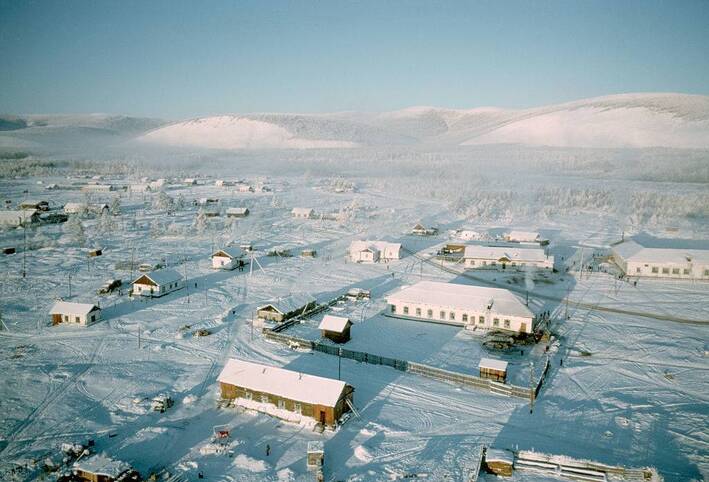
Source: Dean Conger/Corbis via Getty Images
If you thought this was impressive enough already, wait until you hear about how China holds the title for the coldest city ever recorded at a mind-boggling -67.7 degrees Fahrenheit back in 1951! It’s almost too chilly for words but somehow people still manage to live there!
A Tale of Two Superpowers: Russia and China, Who Borders Whom?
We all know that Russia and China are two of the biggest countries on the planet. In fact, if you stacked them up side-by-side, it would be surprising to find out just how much smaller China is compared to its neighbor! That doesn’t stop either one from being mighty though–in fact, both countries border a whopping 14 other nations.

Source: SERGEI ILNITSKY/POOL/AFP via Getty Images
Russia shares a border with Azerbaijan, Belarus, China (yep!)Estonia, Finland, Georgia, Kazakhstan , Latvia, Lithuania , Mongolia , North Korea , Norway Poland and Ukraine while China’s neighbors include Afghanistan Bhutan India Kazakhstan Kyrgyzstan Laos Myanmar Nepal North Korea Pakistan Russia Tajikistan Vietnam – no small potatoes there either!
Discover the Hidden Ancient Pyramids of Sudan:Twice as Many as Egypt!
Have you ever heard of the ancient pyramids in Sudan? If not, then you’re missing out! Believe it or not, there are nearly twice as many pyramids in Sudan than those found in the better-known pyramid country, Egypt.
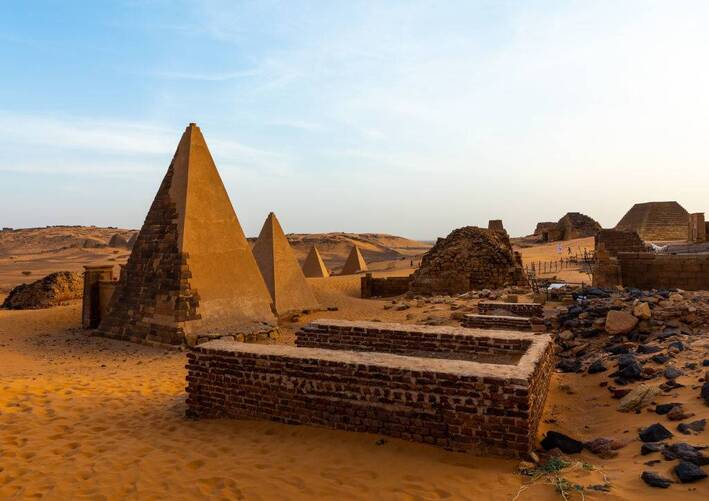
Source: Eric Lafforgue/Art in All of Us/Corbis via Getty Images
Built by the Kushite kingdoms of Nubia, to this day there exist between 200 and 255 known pyramids in Sudan – that’s 138 more than what can be seen and explored at Giza! Today these ancient structures still stand tall at Meroe where visitors can explore their historical significance for themselves. So why not plan a trip to discover these hidden archaeological wonders?
Do you consider yourself a geography enthusiast? Get excited, because this map shows us something new!
Take note of the red areas with high populations and the gray areas with low populations. You’ll start to get an idea of which states people are choosing as their home. California is calling many people in,offering up year-round sunshine as its selling point.

Source: lex52485/Reddit
On the other hand, fewer people are packing up for the cold, rural states across America. It’s clear that New England and most of the east coast continue to be popular among residents – especially those looking for an autumnal lifestyle change. So wherever your reasons, be sure to check out these maps for more insight!
Texas: An Itty Bitty Dot on a Gigantic African Map!"
Gone are the days when thinking of Texas made you imagine something huge and impressive. When compared to the giant that is Africa, it’s easy to see how tiny our Lone Star State really is! While Texas may stretch out for 676,587 sq km, its size pales in comparison to the monstrous 30,370,000 sq km of land of Africa.
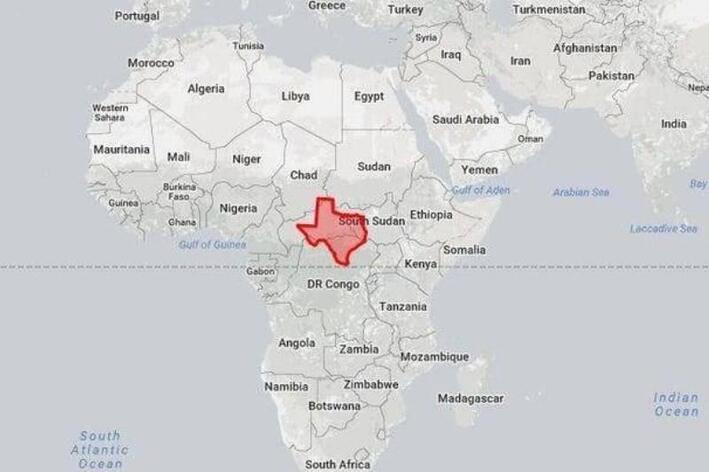
Source: Reddit
That’s almost 45 times bigger than The Lone Star State! Sure enough – when you place a map of Texas over Africa – they look like two galaxies colliding – with little ol’ Texas nothing more than an itty bitty dot on one side of the screen!
East Coast Skygazers: See the Milky Way in Middle and Northwest America!
Into stargazing? If so, you’ve probably noticed that seeing the stars has become increasingly difficult. This is due to light pollution, which obscures our view of the night sky. According to a 2016 study, 80% of North Americans can’t see the Milky Way from their backyards!
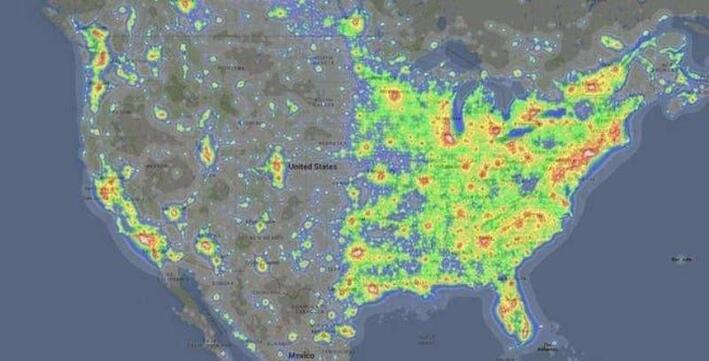
Source: there_is_no_try/Reddit
However,in west,middle and northwest America,light pollution is much less than states east of the Mississippi River. You can thank places like North Dakota for their random light output caused by shale oil extractions and huge commercial buildings. It may be a drive across the country but if it’s stargazing you seek, it will be worth your while!
Are You Ready To Fly Through The Air Traffic Control's Amazing Scenery?
Looking at a map of the United States, you might think it’s divided up in an organized manner by state lines – however, that’s not the case when it comes to air traffic control. Instead, there are 21 zones made up of sectors with a radius of 50 miles.
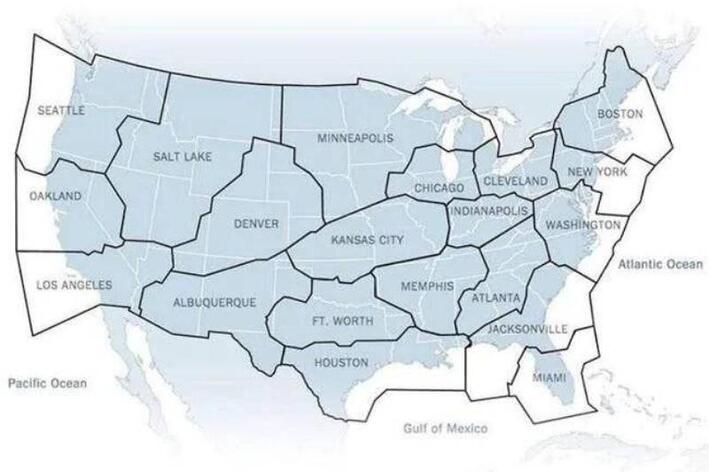
Source: lucyeeliza/Reddit
All airports are spread out within this area, with each given a five-mile radius to operate in. But what makes air traffic control unique is that each zone offers its own scenery – from spectacular views to amazing sunsets! So next time you’re flying, make sure to take a moment and appreciate all that air traffic control has to offer.
Exploring the Diverse Land of the United States!
The United States has 3.8 million square miles of breathtaking land to explore, each with its own distinct uses and features. From forests in the west to great pastures for livestock in middle America, no matter where you go, you’ll find something unique to experience.
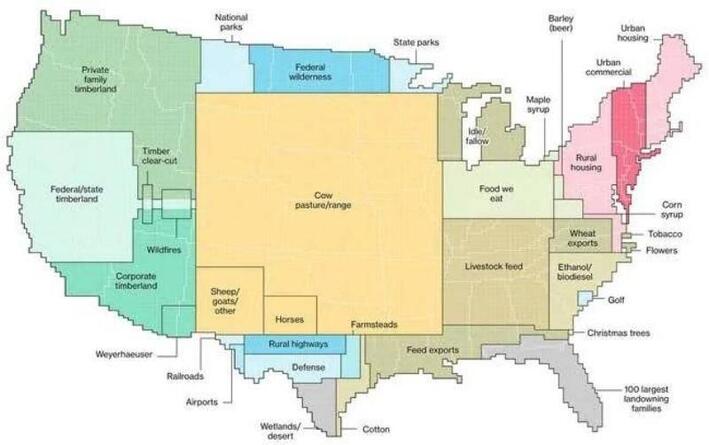
Source: Al-Andalusia/Reddit
Even small spaces like national parks and maple syrup producing splotches are significant contributions from our beautiful country! There’s truly something for everyone here – a diverse landscape that never fails to deliver an amazing time. Get ready to explore one of Earth’s most wondrous places: The United States!
The Mighty Mongolian Empire - A Legacy Left Behind!
Once upon a time, there was a powerful empire that spanned across continents. It was none other than the mighty Mongolian Empire of the 13th and 14th centuries. Born from Genghis Khan’s alliance of nomadic tribes, this land empire became the largest in recorded history.
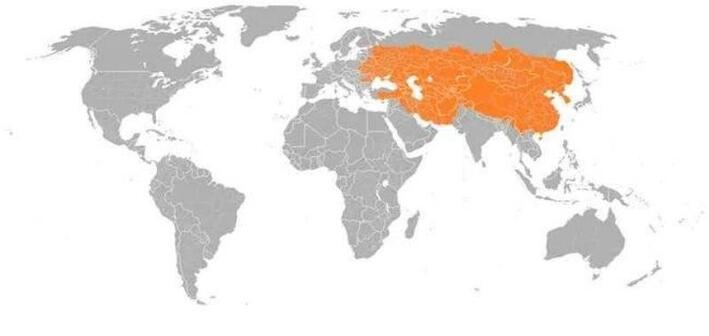
Source: CountZapolai/Reddit
Stretching from Central and Eastern Europe to the Sea of Japan and beyond. From the Arctic up north to the Carpathian and Levant Mountains in the West, all its way down south to Southeast Asia, India and even Iran – it reached an incredible nine million square miles! This former colossus left behind an indelible legacy that shall never be forgotten!
New Zealand: A Tiny Blip in Comparison to the US!
When it comes to size, the United States puts New Zealand to shame. With an estimated 9,833,517 sq km versus 268,838 sq km for New Zealand – that’s a whopping 3,558 percent difference! Even when compared with another sizable country like the United Kingdom (which has a similar landmass), our southwestern Pacific neighbor looks minuscule in comparison.
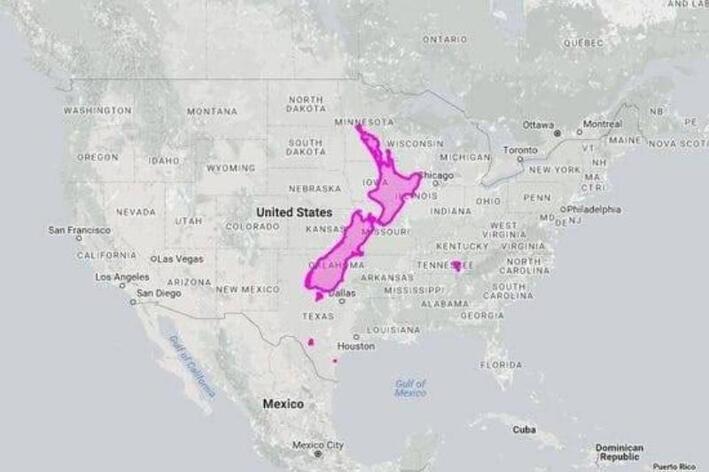
Source: Reddit
But despite its small size, New Zealand is home to an abundance of flora and fauna and rich culture – making it quite impressive for such a tiny country. So next time you’re feeling overwhelmed by your own problems and want perspective — just remember that everything is relative!
Should America Go Metric? A Comparison of Measurement Systems
It’s time for change – at least when it comes to measurement in America. For centuries, American citizens have been following the imperial system handed down from their British colonizers. Meanwhile, all other countries on Earth are following the metric system – except for Liberia and Myanmar.
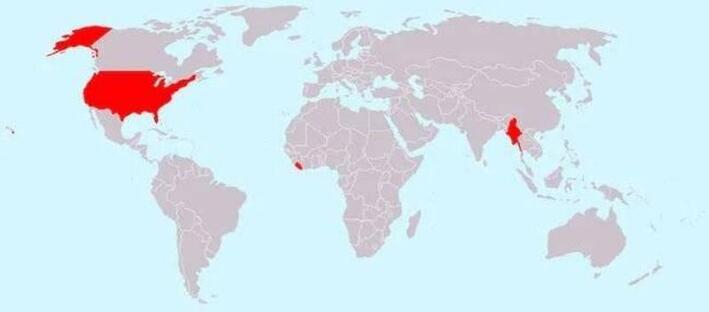
Source: Wikimedia Commons
So why is the U.S. still stuck in imperial times? The metric system offers many advantages that make it a better choice than even Britain’s tradition-steeped units of measure!. So what should Americans do? Weighing cost versus convenience can help answer this age-old question: It’s your call – so consider carefully before you cast your vote!
Trees Planted, Forests Growing: A Look at America's 228 Billion Trees
America is home to an astonishing 228 billion trees! Data from maps indicate that these forests are more densely populated in the northwest and east of the Mississippi River. Surprisingly enough, since the 1950s there has actually been a significant growth in wood-per-acre.
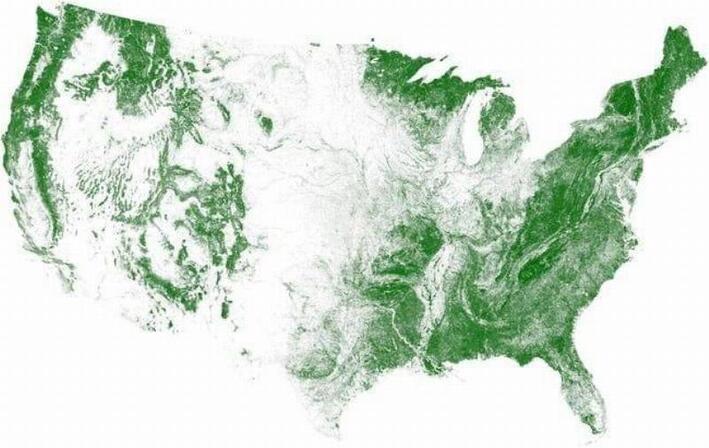
Source: DrWendigo/Reddit
It wasn’t always this way though; when European settlers first arrived on American shores they uprooted much of nature’s growth. However, people now recognize the importance of preserving and conserving their natural environment. A prime example of this is Mayor Michael Bloomberg’s plan to plant one million trees in New York City – a goal which was successfully met back in 2017!
Journey Through History: Exploring the Forgotten Railroads of the United States
From the early settlements of the west to the Industrial Revolution in the east, railways were integral in building America. In 182,John Stevens revealed his vision for the Baltimore & Ohio Railroad and thus began a new era of freight and passenger transport.
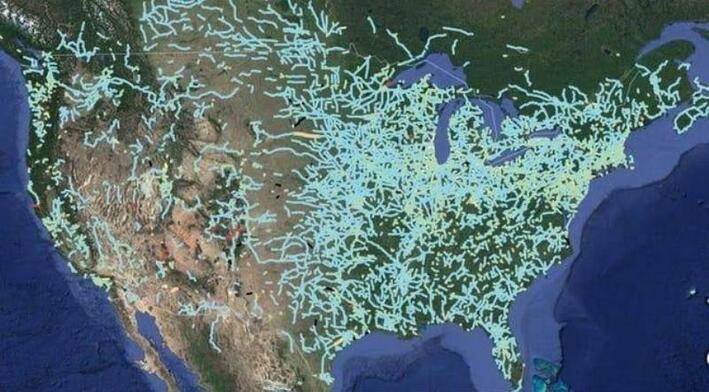
Source: Suzy Sholar/Pinterest
However, as time moved on and new inventions emerged many railways were left behind. Today a majority of abandoned railways are located in the east but slowly make their way out west – it’s an occurrence that historians attribute to a variety of factors such as slow construction projects and more popular modes of transportation like airplanes and automobiles.
Canada - Where The Largest Concentration Of Lakes Are!
With 31,752 lakes, Canada has more lakes than any other country or place in the world (and there are 1.42 million of them) at 62%. In fact, nine percent of all of Canada is a freshwater lake.
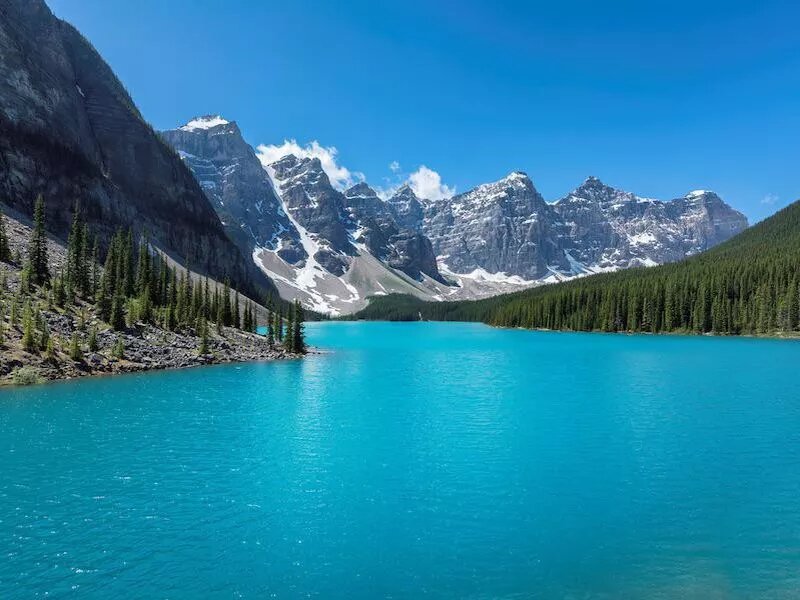
Source: Getty Images
Additionally, their scope is also really impressive, as 561 of Canada’s lakes measure more than 62 square miles. The lakes are crucial in shaping the country’s water cycle, even though not much information is known about them. Unfortunately, researchers have found that the lakes in northern Canada could be drastically affected by fast-melting glaciers caused by global warming.
42 Buildings In New York City Have Their Very Own Zip Codes - Impressive!
For a long time, New York City has been known as The City That Never Sleeps. The city is also primarily associated with its towering skyscrapers (some of which even have their own zip codes). Wow, talk about epic!

Source: Getty Images
A few of these buildings are ones that we are all familiar with and have heard about, but we didn’t know that they boasted their own zip codes. The Empire State Building, MetLife Building, the Woolworth Building, and the Chrysler Building are some of these illustrious buildings. However, size isn’t actually the determining factor, it’s the volume of mail that the buildings receive.
Point Nemo - The Most Remote Place On The Planet
This place has been ceremoniously named “the oceanic pole of inaccessibility.” Being 1,000 miles directionally from any land is Point Nemo. Fittingly, “Nemo” in Latin actually means “no one.” It’s in the middle of nowhere.
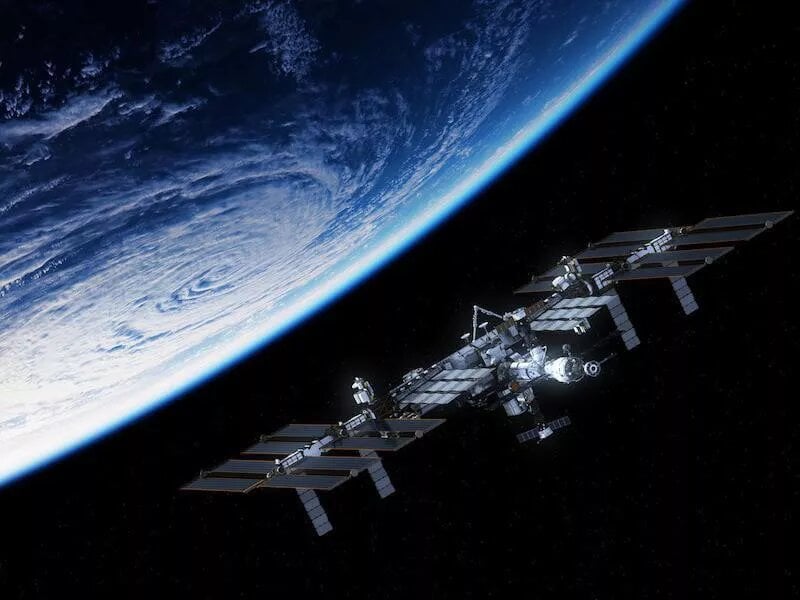
Source: Getty Images
Astronauts on the International Space Station are the only living beings closest to Point Nemo. But, this is only when they pass above the point 258 miles away! Point Nemo is actually named after the famous submarine sailor from Twenty Thousand Leagues Under the Sea by Jules Verne.
Santa Claus Lives On An Island…His Home Would Be Floating!
Contrary to popular belief, the North Pole is not made of solely land. Actually, it’s made up of polar ice caps (or, floating icebergs). So, if Santa Claus is real, he is living on a floating iceberg. Since the ice caps are always moving, the North Pole moves with it.
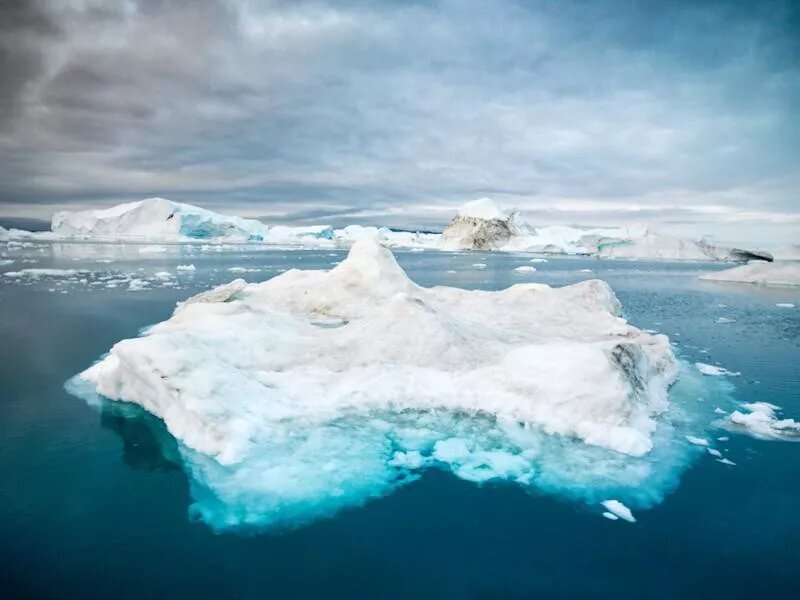
Source: Getty Images
Over the past 40 years, scientists have observed an unsettling discovery. They have seen a steep decline in both the amount and thickness of Arctic sea ice during summer and winter.
Most Of The United States’ Coastline Is In Alaska
While California may have an extremely long coastline, it’s nowhere close to Alaska’s. That being said, more than half of the whole country’s coastline is located in Alaska. Alaska’s coastline, as well as its islands, comprises 47,300 miles.
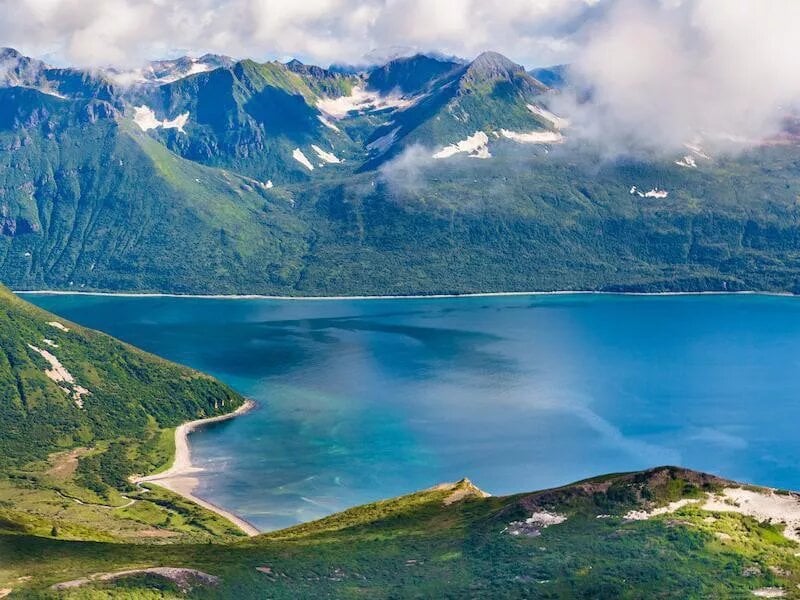
Source: Getty Images
There are more than 2,600 named islands in Alaska, which is why its coastline is longer than all of the other states combined! Alaska has 6,640 miles of coastline and 33,904 miles of shoreline. The Alaska coastline faces the North Pacific Ocean, Bering Sea, Beaufort Sea, Chukchi Sea, and the Arctic Ocean.
Continents Move Faster Under Stress
At about 1 inch per year is how much continents move. However, scientists have discovered that when tectonic plates are under immense stress, they can move 20 times more quickly. As the plates start to separate, they move apart as fast as your fingernails can grow. Whoa, so much for slowing down as you age!
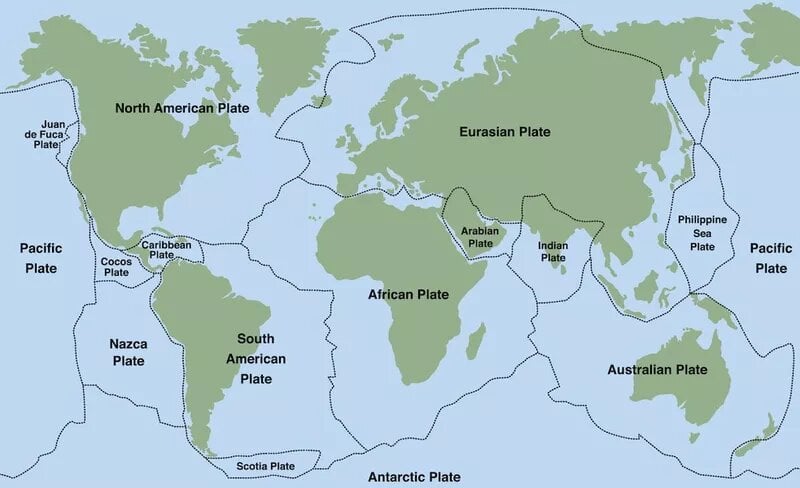
Source: Getty Images
Plate tectonics is driven by the foundation and destruction of the oceanic crust. The plates move apart because of the crust, letting in hot, light magma to surface from the mantle below and solidify.
The Dead Sea Is Sinking At A Startling Rate
The Dead Sea is already 1,388 feet below sea level and it’s continually sinking, making the salty sea have the lowest on-land elevation. Researchers have discovered that the Dead Sea’s surface level is dropping more than three feet per year.
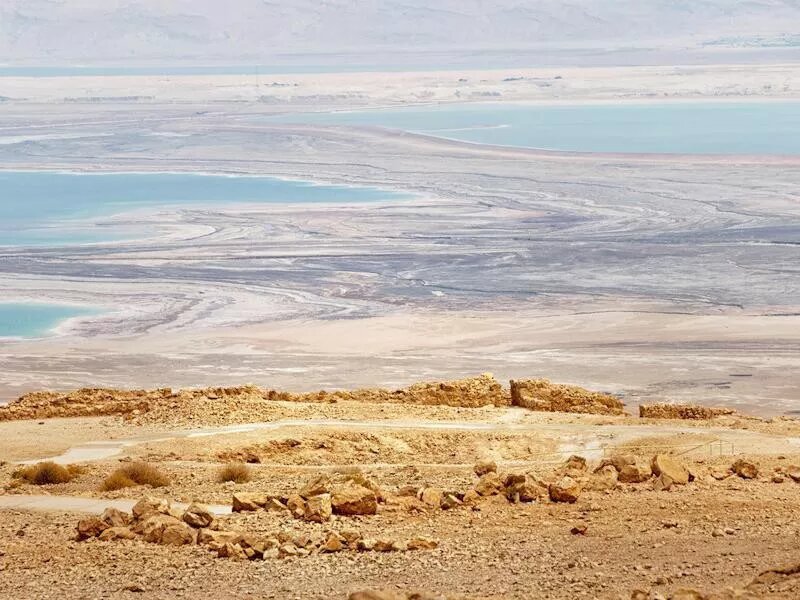
Source: Getty Images
Not only is it dying, but its banks are also collapsing. The lake’s main part is now around 950 feet deep, which is about 15% shallower and a third of the surface area compared to its initial shape half a century ago. But, humans won’t sink!
You Can Walk To Russia From Alaska In A Matter Of Miles!
With a 2.5-mile stretch dividing Russia’s Big Diomede island from Alaska’s Little Diomede island, you can actually walk from to and from each place. In the winter, the water that separates the islands freezes, enabling you to embark on that journey.
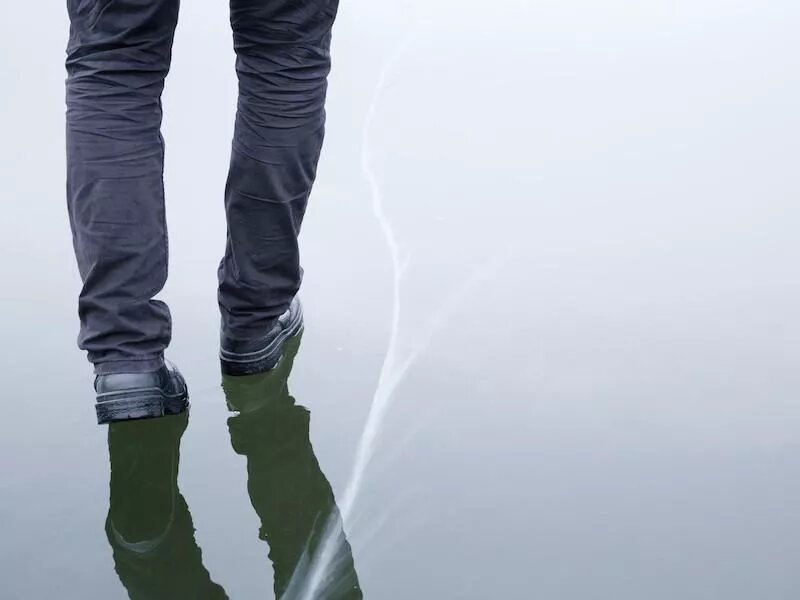
Source: Getty Images
Funnily enough, by the time that you get to Russia, you would arrive 21 hours later than when you started. You’d have to cross over the Bering Strait, the body of water that divides Alaska from northeastern Siberia.
The Nebraskan Town That Has Only One Resident
Monowi, Nebraska is the only incorporated town in the U.S. with a grand population of one person. Her name is Elsie Eiler! She’s the mayor, pays taxes to herself, and grants her own liquor license. She’s also the treasurer, clerk, secretary, tavern owner, and librarian.
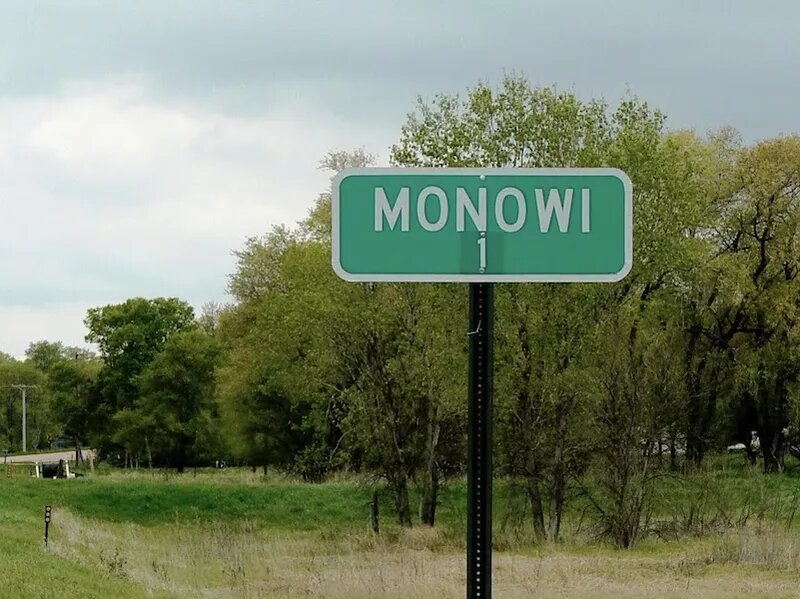
Source: YouTube
Monowi is considered America’s smallest small town, founded in 1902 and considered an ordinary prairie village. Off Nebraska’s Highway 12, just five miles from the South Dakota border, stands a grain elevator, an abandoned schoolhouse, and a church.
There Are 7,000 Caribbean Islands
While you may be familiar with the 26 Caribbean island nations that are inhabited, there are actually 7,000 islands across 1 million square miles that comprise all of the Caribbean Islands. Additionally, there are 13 separate nations. Island jumping takes on a different meaning there!
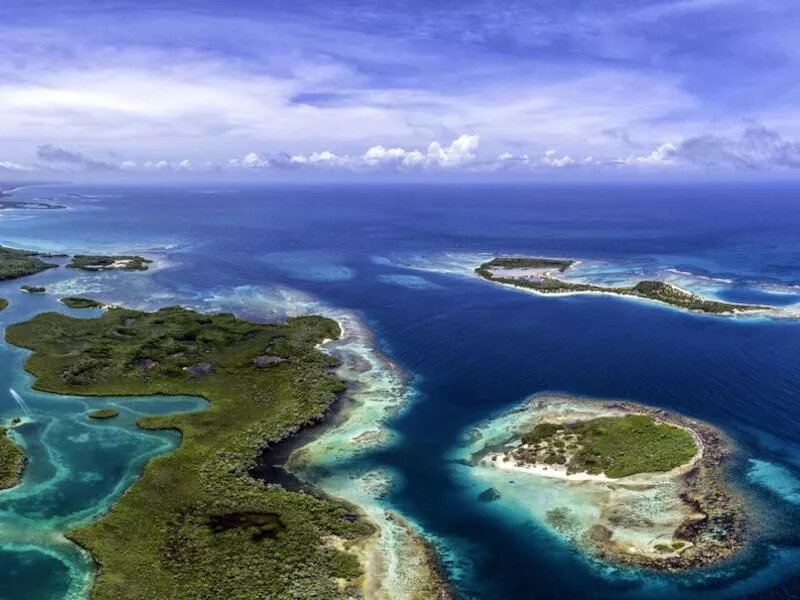
Source: Getty Images
Now, these 7,000 islands also include the islets and keys. The Bahamas alone are made up of 700 plus islands and 2,400 islets and keys, of which only 30-40 are inhabited.
Greece Boasts More Than 200 Inhabited Islands
Just like the Caribbean, Greece is also known for the stunning and vibrant beauty of its islands. The total number of islands in the country is between 1,200 and 6,000, depending on what you classify as an island.
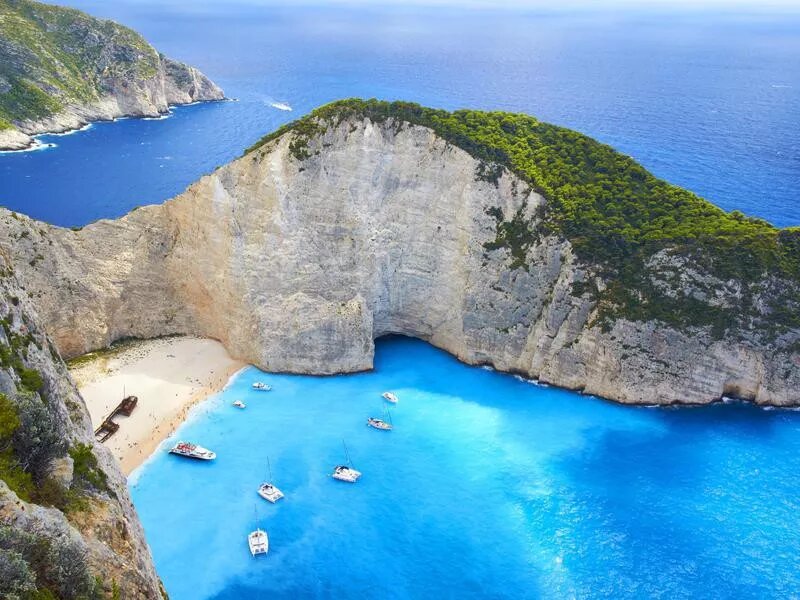
Source: simonbradfield/ Getty Images
Talking about the islands that are inhabited, the estimates are between 166 and 227. Greece’s coastline offers a diverse landscape, from beaches that stretch over many kilometers, to sandy beaches and sand dunes, to pebble beaches, wetlands, and deltas. The magnificent wonders of Greece are truly endless!
The World’s Largest War Memorial Is A Road In Australia
After World War One, when soldiers returned home, they were offered jobs to build a road along Australia’s gorgeous coast. After it was finished in 1932, the Great Ocean Road spanned 150 miles.
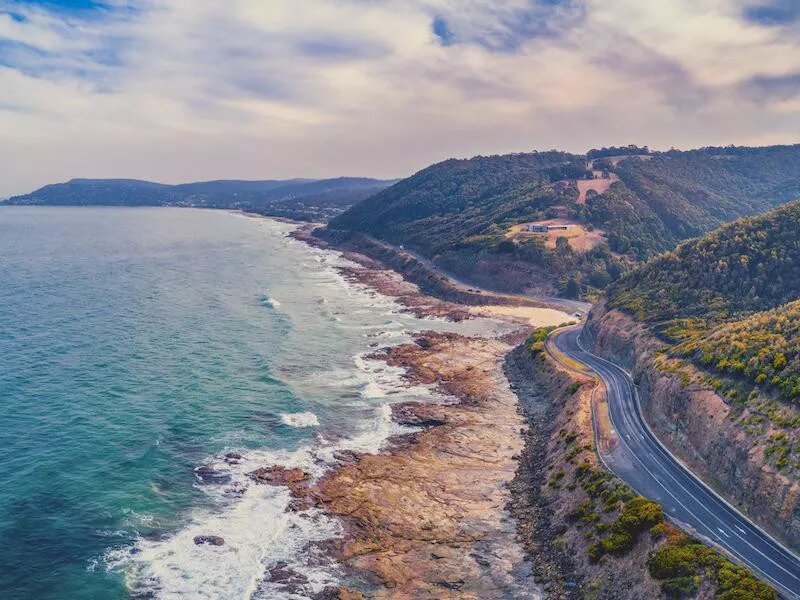
Source: Getty Images
It was dedicated to the Australian soldiers who lost their lives in the war, lending it the name of the world’s longest war memorial. Furthermore, it was built to honor the 3,000 servicemen that worked on and constructed the road from 1919 to 1932. The Great Ocean Road is considered one of the top ten drives in the world! Now, that’s a sight you have to experience at least once.
If You Think Learning A Second Language Is Hard, Try 850+! This Country Has All Of Those
Over 850 is the number of current languages spoken in Papua New Guinea, which is the most linguistically diverse country in the world. Over 80% of Papua New Guinea’s population lives in rural areas and they have little to no contact with external influences or other tribes.

Source: Getty Images
After its independence, Papua New Guinea adopted three official languages. English is the first, Tok Pisin, a creole, is the second, and Hiri Motu (a simplified version of Motu, an Austronesian language) is the third.
China – More Hurricanes Hit This Nation Than Any Other
The Caribbean or Oceania aren’t the only places devastated by hurricanes (known as typhoons there), China is the nation that’s been struck by more than 172 hurricanes since 1970. Its largest typhoon struck Rammasun in 2014, with winds reaching 160 miles per hour.
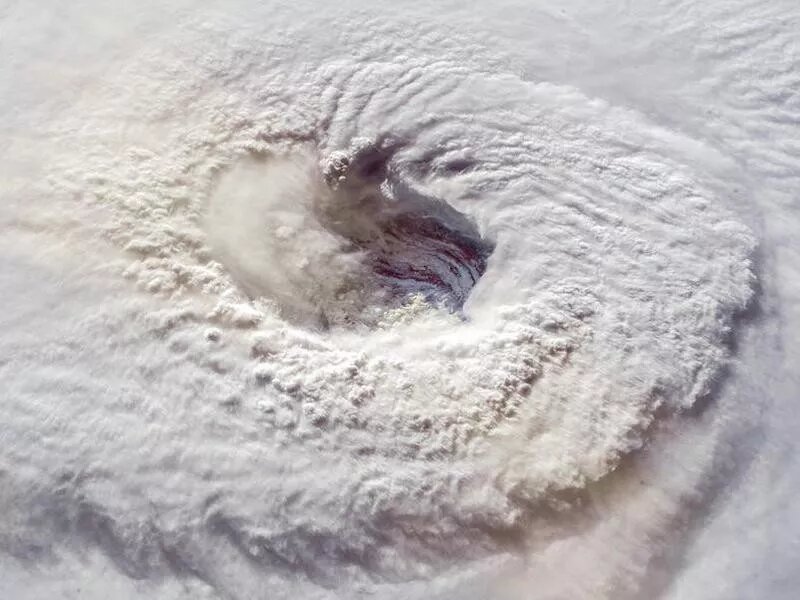
Source: Cayman Trough
The primary typhoon season goes on from June to November. But, sometimes, they appear as early as May and as late as December. Needless to say, you would not want to be visiting China’s mainland when one of these storms hits.
The World’s Largest Desert Is The Last Place You’d Think
Upon first guess, you’d probably think that the largest desert in the world is the Sahara or the Gobi desert. In fact, this esteemed honor goes to the tremendous continent of Antarctica.
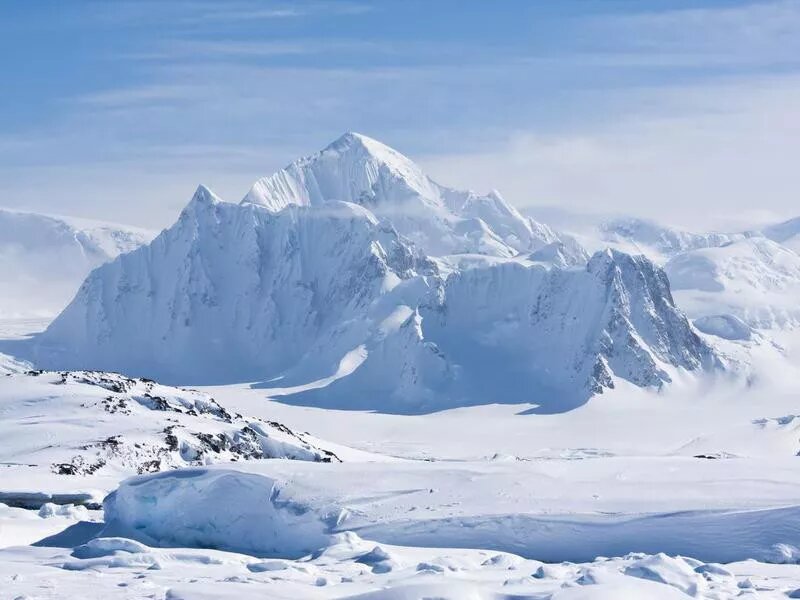
Source: goinyk/ Getty Images
The definition of a desert is a dry area with low vegetation and Antarctica certainly fits the bill. Even though it looks different than what we normally associate a desert with, it doesn’t rain or snow too much there. So, when it does snow, the ice doesn’t melt but makes large, thick sheets of ice (ice sheets) that build up over many years.
